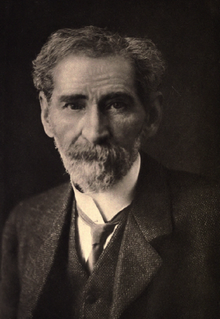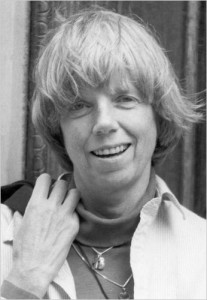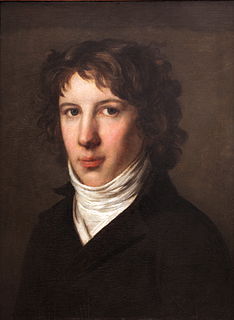A Quote by William Henry Hudson
Bear in mind that the children of life are the children of joy; that the lower animals are only unhappy when made so by man; that man alone of all the creatures, has "found out many inventions", the chief of which appears to be the art of making himself miserable, and of seeing all Nature stained with that dark and hateful colour.
Related Quotes
Nature hath made men so equal in the faculties of body and mind, as that though there be found one man sometimes manifestly stronger in body, or of quicker mind than another, yet when all is reckoned together, the difference between man and man is not so considerable as that one man can thereupon claim to himself any benefit to which another may not pretend as well as he.
There are three kinds of nature in man, as Nicetas Stethatos further explains: the carnal man, who wants to live for his own pleasure, even if it harms others; the natural man, who wants to please both himself and others; and the spiritual man, who wants to please only God, even if it harms himself. The first is lower than human nature, the second is normal, the third is above nature; it is life in Christ.
There are a few animals that have won themselves a bad reputation even though they have little or no effect on man. They have won their rating through man's interpretation of their attitude towards lower animals. These animals have been seen feeding in what appears to be a savage manner. But this behavior may perhaps be comparable to a man tearing the flesh off a chicken leg with his teeth.
The purpose of life seems to be to acquaint a man with himself and whatever science or art or course of action he engages in reacts upon and illuminates the recesses of his own mind. Thus friends seem to be only mirrors to draw out and explain to us ourselves; and that which draws us nearer our fellow man, is, that the deep Heart in one, answers the deep Heart in another, - that we find we have (a common Nature) - one life which runs through all individuals, and which is indeed Divine.
Solitude is the profoundest fact of the human condition. Man is the only being who knows he is alone, and the only one who seeks out another. His nature - if that word can be used in reference to man, who has ‘invented’ himself by saying ‘no’ to nature - consists in his longing to realize himself in another. Man is nostalgia and a search for communion. Therefore, when he is aware of himself he is aware of his lack of another, that is, of his solitude.
Our contemporary society is experimenting with the diminishment of caregivers for children. Some children are raised through crucial stages of life by only one person. This one person, who strives to give the best, may be overwhelmed, busy, trying to raise many children. And even in homes with two parents, many children are essentially alone.
It has always seemed to me that the social order was implicit in the very nature of things, and required nothing more from the human spirit than care in arranging the various elements; that a people could be governed without being made thralls or libertines or victims thereby; that man was born for peace and liberty, and became miserable and cruel only through the action of insidious and oppressive laws. And I believe therefore that if man be given laws which harmonize with the dictates of nature and of his heart he will cease to be unhappy and corrupt.
I do not see any reason why animals should be slaughtered to serve as human diet when there are so many substitutes. After all, man can live without meat. It is only some carnivorous animals that have to subsist on flesh. Killing animals for sport, for pleasure, for adventures, and for hides and furs is a phenomenon which is at once disgusting and distressing. There is no justification in indulging in such acts of brutality . . . Life is as dear to a mute creature as it is to a man. Just as one wants happiness and fears pain, just as one wants to live and not to die, so do other creatures.
Technologically, modern man does everything he can do-he functions on this single boundary principle. Modern man, seeing himself as autonomous, with no personal-infinite God who has spoken, has no adequate universal to supply an adequate second boundary condition; and man being fallen is not only finite, but sinful. Thus man's pragmatically made choices have no reference point beyond human egotism. It is dog eat dog, man eat man, man eat nature.
Our age is one in which usefulness is thought to be the chief merit of nature; in which the attainment of power, the utilization of its resources is taken to be the chief purpose of man in God's creation. Man has indeed become primarily a tool-making animal, and the world is now a gigantic tool box for the satisfaction of his needs.
It appears to Nietzsche that the modern age has produced for imitation three types of man ... First, Rousseau's man, the Titan who raises himself ... and in his need calls upon holy nature. Then Goethe's man ... a spectator of the world ... Third Schopenhauer's man ... voluntarily takes upon himself the pain of telling the truth.
On the whole, yes, I would rather be the Chief Justice of the United States, and a quieter life than that which becomes at the White House is more in keeping with the temperament, but when taken into consideration that I go into history as President, and my children and my children's children are the better placed on account of that fact, I am inclined to think that to be President well compensates one for all the trials and criticisms he has to bear and undergo.



































